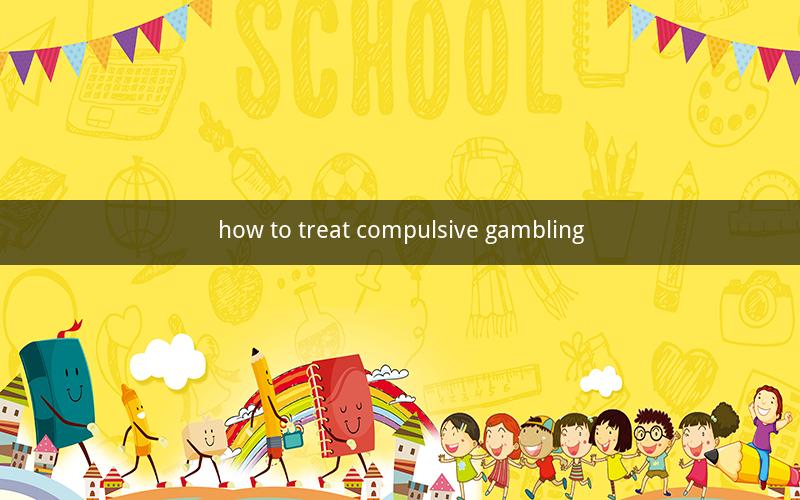
Directory
1. Understanding Compulsive Gambling
2. Recognizing the Signs
3. The Psychological Impact
4. The Social and Financial Consequences
5. Professional Help and Therapies
6. Self-Help and Support Groups
7. Legal and Ethical Considerations
8. Prevention and Education
9. Case Studies and Success Stories
10. Conclusion
1. Understanding Compulsive Gambling
Compulsive gambling, also known as problem gambling, is a behavioral addiction that affects individuals of all ages, genders, and socioeconomic backgrounds. It is characterized by an inability to control or stop gambling, despite negative consequences in various aspects of life. This article aims to provide an overview of how to treat compulsive gambling.
2. Recognizing the Signs
Identifying the signs of compulsive gambling is crucial for early intervention. Common signs include:
- Preoccupation with gambling, such as constantly thinking about the next bet.
- Needing to bet more money to achieve the same excitement.
- Feelings of remorse, guilt, or shame after gambling.
- Trying to conceal gambling activities from friends and family.
- Using money meant for other purposes to finance gambling.
- Risking relationships, employment, or education for gambling.
3. The Psychological Impact
Compulsive gambling can have severe psychological consequences, including:
- Depression and anxiety.
- Feelings of helplessness and hopelessness.
- Obsessive thoughts and compulsions.
- Suicidal ideation.
4. The Social and Financial Consequences
Compulsive gambling can lead to significant social and financial consequences, such as:
- Financial ruin.
- Relationship breakdowns.
- Loss of employment.
- Legal problems.
5. Professional Help and Therapies
Professional help is essential for treating compulsive gambling. Common treatment options include:
- Cognitive-behavioral therapy (CBT): A type of therapy that helps individuals identify and change negative thought patterns and behaviors.
- Contingency management: A behavioral therapy that rewards individuals for positive behaviors and penalizes negative behaviors.
- Family therapy: Helps families understand and cope with the impact of compulsive gambling on their lives.
- Medication: Certain medications may be prescribed to help manage symptoms of depression or anxiety associated with compulsive gambling.
6. Self-Help and Support Groups
Self-help and support groups can provide individuals with a sense of community and support. Examples include:
- Gamblers Anonymous (GA): A 12-step fellowship for individuals with a gambling problem.
- SMART Recovery: A self-empowering program that helps individuals overcome addictive behaviors.
- Gamblers Help Online: An online community that provides support and resources for individuals with a gambling problem.
7. Legal and Ethical Considerations
It is essential to consider legal and ethical aspects when treating compulsive gambling. Some key considerations include:
- Informed consent: Individuals should be fully informed about the treatment options and their potential benefits and risks.
- Confidentiality: Therapists and support group leaders must maintain confidentiality to ensure trust and privacy.
- Professional boundaries: Therapists and support group leaders must maintain professional boundaries to prevent exploitation or harm.
8. Prevention and Education
Prevention and education are crucial in addressing compulsive gambling. Some strategies include:
- Public awareness campaigns: Raising awareness about the risks and consequences of compulsive gambling.
- School programs: Educating children and adolescents about responsible gambling and the signs of a gambling problem.
- Workshops and seminars: Providing information and resources for individuals, families, and professionals.
9. Case Studies and Success Stories
Numerous case studies and success stories demonstrate the effectiveness of treating compulsive gambling. These stories provide hope and inspiration for individuals struggling with this addiction.
10. Conclusion
Compulsive gambling is a serious addiction that can have devastating consequences for individuals and their families. By understanding the signs, seeking professional help, and participating in self-help and support groups, individuals can overcome this addiction and rebuild their lives.
Questions and Answers
1. What are the main signs of compulsive gambling?
2. How can cognitive-behavioral therapy help treat compulsive gambling?
3. What are the social consequences of compulsive gambling?
4. Can medication be used to treat compulsive gambling?
5. How can family therapy benefit individuals with a gambling problem?
6. What is the role of Gamblers Anonymous in treating compulsive gambling?
7. How can education help prevent compulsive gambling?
8. What are the legal implications of treating compulsive gambling?
9. Can compulsive gambling lead to suicidal thoughts?
10. How can individuals find support for their gambling problem?